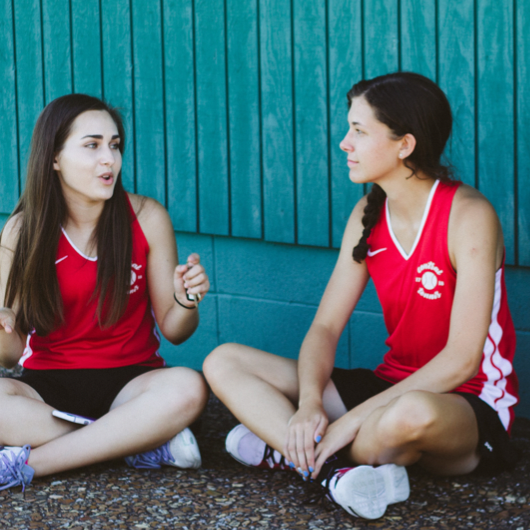
Amenorrhea (lack of periods) in female athletes and nutritional strategies
As a former female athlete myself I know how serious it is when your periods stop. A familiar question from clients and parents contacting me relates to their active teenage daughters whose periods have stopped. They are right to be worried. An absence of periods, it’s also called amenorrhea, can be linked to serious health problems including a loss of calcium from the bones, almost a three times higher incidence of stress fractures and long-term problems with osteoporosis. It also causes problems with fertility further down the line.
After my period stopped for five months in my teenage years, I took myself to the doctors where I was told that my thousand calorie a day diet, my low-fat intake and my overtraining was to blame. I was lucky, that one appointment changed everything for me. I am grateful for the directness with which my GP, who I knew and had a great relationship with, delivered the news and advice. Many teenagers today do not have that kind of connection with their GP and especially after the pandemic when links with doctors’ surgeries have become more removed and distant.
If your daughter has found themselves in this situation where their periods have stopped please reassure them that they are not alone. Up to 44% of weight based athletes experience amenorrhea as opposed to 2 to 5% of women in the general population. What I mean by weight-based activities is ballet, gymnastics, running.
The reasons for amenorrhea commonly relate to overtraining and malnutrition. That was certainly true in my case. We might think in this day and age that malnutrition doesn’t exist and certainly not in the western world but it does. Essentially, when you put your body under famine-like conditions, menstruation stops in order to conserve energy.
If this sounds familiar to your situation with your child then please share with them these top tips to getting back on track:
- Make sure you are getting adequate vitamin D to help with calcium absorption and bone health. Whilst sunlight on the skin helps to make Vitamin D, if you are an indoor sports person or if it’s the winter you need to choose foods that have been fortified with Vitamin D as well as a Vitamin D supplement. You’ll find fortified foods such as breakfast cereals, some plant-based milks, dairy milk, fatty fish like salmon, mackerel, sardines as well as eggs and mushrooms useful sources but do also supplement during the winter months.
- Ensure you are getting sufficient healthy fats. You will not get fat by eating fat. Your body needs fats to absorb vitamins A, D, E and K. These vitamins are extremely important to your good health. Enjoy nuts on your porridge, snack on apple wedges dipped in almond butter, enjoy salmon for your evening meal, drizzle olive oil on steamed vegetables or salad, smashed avocado on toast is ideal too.
- Eat adequate protein. When you under eat your body burns protein for energy. Some of the protein comes from your diet; for example the protein in your food gets used for fuel instead of building and repairing muscles. Some of the required protein comes from your muscles, hence, you experience muscle wasting and that can lead to weak bones and stress fractures.
- Eat calcium-rich foods daily to help maintain bone density. Exercise alone is not enough to keep bones strong. Enjoy dairy foods as well as dark green leafy vegetables, seeds, nuts as sources of calcium, as well as fortified foods, especially if you are more plant-based.
- Enjoy iron-rich foods away from calcium-rich foods as calcium can inhibit iron absorption. However, vitamin C rich foods are ideal alongside iron-rich foods as they can actually increase absorption. Some lemon drizzled over your chicken or fish or an orange as pudding are ideal combinations.
Understanding which nutrients to focus on can help get your periods on track once again. This should be a focus as there are both short and long term health effects associated with a lack of periods.
